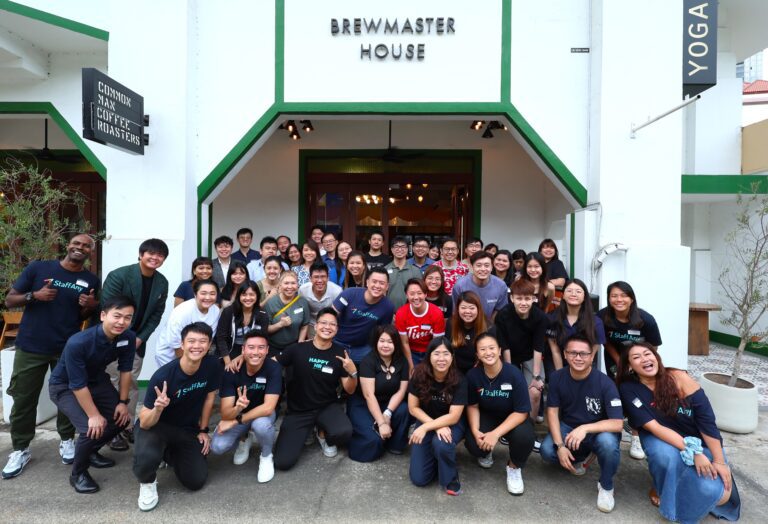Scheduling plays a crucial role in the success of any business. It ensures that tasks are organised, resources are optimised, and goals are achieved in a timely manner. In the fast-paced and competitive world of business, effective scheduling can make a significant difference. Whether it’s managing employee shifts, production timelines, or client appointments, businesses rely on efficient scheduling practices to streamline operations and maximise productivity.
In this article, we will explore the importance of scheduling in business and provide examples of how it is implemented in the F&B industry. Let’s find out below!
What is Business Scheduling?
Business scheduling refers to the process of planning and organising tasks, activities, and resources within a company. It involves creating timelines, allocating resources, and assigning responsibilities to ensure that all necessary work is completed efficiently and on time. Effective scheduling takes into account various factors such as available resources, deadlines, priorities, and dependencies among tasks. It provides a structured framework for businesses to manage their operations, meet objectives, and maintain a competitive edge.
Importance of Scheduling for F&B Businesses
The F&B industry is highly dynamic, with tight margins and demanding customer expectations. Effective scheduling is crucial for F&B businesses to ensure seamless operations and deliver exceptional customer experiences. Let’s explore eight key reasons why scheduling holds immense importance in the F&B industry.
1. Resource Optimization
Efficient scheduling enables F&B businesses to optimise their resources effectively. By aligning staff schedules with peak hours, businesses can ensure optimal coverage, minimise overstaffing or understaffing, and eliminate unnecessary expenses. This ensures that the right number of employees is available at the right time, allowing smooth operations and enhanced productivity.
2. Meeting Customer Demand
One of the primary objectives of scheduling in the F&B industry is to meet customer demand effectively. By analysing historical data, trends, and customer preferences, businesses can schedule staff and inventory levels accordingly. This ensures that there are enough resources to handle busy periods, preventing customers from experiencing long wait times or shortages. Meeting customer demand promptly leads to higher customer satisfaction and loyalty.
3. Minimising Errors and Delays
A well-designed schedule minimises the chances of errors and delays in F&B operations. By allocating sufficient time for food preparation, ensuring timely order delivery, and avoiding bottlenecks in the workflow, businesses can maintain consistency in their service. This results in improved customer satisfaction and helps build a positive reputation for the business.
4. Enhancing Employee Satisfaction
Optimised scheduling has a direct impact on employee satisfaction in the F&B industry. By considering factors such as employee preferences, availability, and workload distribution, businesses can create a balanced schedule that promotes work-life balance and reduces burnout. Satisfied employees are more likely to deliver excellent customer service, leading to better business performance.
5. Streamlining Training and Onboarding
Scheduling plays a crucial role in training and onboarding new employees in F&B businesses. By allocating sufficient time for training sessions and pairing new hires with experienced staff, businesses can ensure a smooth transition and reduce the learning curve. This improves the efficiency and effectiveness of the training process, resulting in competent and well-prepared employees.
6. Managing Seasonal Fluctuations
Many F&B businesses experience seasonal fluctuations in customer demand. Scheduling helps these businesses adjust their workforce and inventory levels accordingly. By anticipating high and low seasons, businesses can optimise costs, reduce wastage, and maintain profitability throughout the year. Effective scheduling allows businesses to adapt to changing demands efficiently.
7. Compliance with Labor Laws
Proper scheduling ensures that F&B businesses comply with labour laws and regulations. By adhering to laws regarding maximum working hours, rest periods, and overtime, businesses can avoid legal complications and penalties. Compliance with labour laws not only protects the business but also ensures fair treatment of employees, fostering a positive work environment.
8. Effective Communication and Collaboration
Scheduling facilitates effective communication and collaboration within F&B businesses. By providing a centralised platform for employees to access their schedules, exchange shift changes, and request time off, businesses can enhance communication, reduce conflicts, and improve overall coordination. Clear and transparent scheduling processes contribute to a cohesive and productive work environment.
Example of Scheduling in the F&B Industry
To illustrate the significance of scheduling in the F&B industry, let’s consider two key examples:
1. Restaurant Staff Scheduling
In a restaurant, proper staff scheduling ensures that there are enough servers, chefs, and other support staff available during peak dining hours. By aligning staff schedules with expected customer demand, the restaurant can provide prompt service, minimise wait times, and deliver a memorable dining experience.
2. Menu Planning and Ingredient Procurement
Effective scheduling also applies to menu planning and ingredient procurement in F&B businesses. By analysing sales data, seasonality, and customer preferences, businesses can schedule menu changes, update ingredient orders, and minimise food waste. This helps in reducing costs, ensuring fresh ingredients, and maintaining an exciting culinary offering.
Scheduling is a critical component of running a successful business, especially in the fast-paced F&B industry. From optimising resources and meeting customer demand to enhancing employee satisfaction and ensuring compliance, scheduling impacts various aspects of an F&B business. By implementing efficient scheduling practices, businesses can streamline operations, drive profitability, and create exceptional experiences for their customers.
To take your scheduling game to the next level, consider utilising StaffAny’s employee schedule maker. StaffAny offers a comprehensive and user-friendly scheduling system that can simplify the entire scheduling process for your F&B business. With advanced features such as shift management, employee availability tracking, and real-time updates, StaffAny empowers you to create efficient schedules with ease. Discover the power of StaffAny‘s employee schedule maker today!






